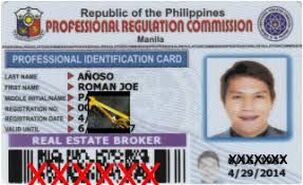Philippine Real Estate LawsIf you plan to invest in the Philippine real estate market, consider the legal aspect before becoming a homeowner or a landlord. Learning about Philippine real estate laws can help prevent any legal complications from arising, so becoming familiar with them is crucial when investing.
If you’re new in this investment field, read on as we share relevant Philippine real estate laws to learn more about your obligations and rights and make well-informed decisions. Maceda Law The Maceda Law is also called the Republic Act 6552 or The Realty Installment Buyer. It safeguards real estate buyers via installment payments in case of disadvantageous conditions and when and how much developers should pay. This law covers residential property transactions, including lots, houses, and condominiums. If buyers can no longer pay for the property, the Maceda Law gives them two rights. Under Maceda Law, buyers can pay outstanding installments with no added interest in a certain grace period. However, the property developer can cancel the contract if the buyer fails to settle the remaining installments within the grace period. Buyers who have paid a specific amount of the property's total value also have the right to refund for a canceled contract. Condominium Act The Republic Act No. 4726, or the Condominium Act, is about the Philippines' rules and regulations for condominiums. It oversees the ownership and management of condos, including owners' rights, from leasing, selling, or renovating to using common areas to prevent fraudulent developers. This law also permits condo owners to partake and cast their votes in corporation meetings of condominiums, such as electing the board of directors and changing rules and regulations of the buildings. In short, the Condominium Act protects condo owners by ensuring they receive fair treatment to enjoy their investments. Subdivision and Condominium Buyers’ Protective Decree Also known as Presidential Decree No. 957, the Subdivision and Condominium Buyer’s Protective Decree encloses the legal rights of property buyers to protect them from misleading ads used by developers, such as the “no down payment” ad. It also contains crucial information that buyers should know before purchasing, like the total payment, property size, and facilities. In addition, it protects buyers from irresponsible developers throughout the purchase, point of sale, and turnover process. With this law, buyers can file a complaint against deceptive developers, given they can provide proof that the seller is conducting illegal business practices and transactions. Investors’ Lease Act The Republic Act 7652, or the Investors' Lease Act, protects foreigners who wish to invest in the Philippine real estate market. It enables foreign investors to rent private land for 50 years. Once the lease agreement expires, the foreign investor can renew it once and rent it for 25 years. Nonetheless, foreign investors can only lease land for investment purposes. Furthermore, this act allows foreign corporations to enter a lease agreement with Filipino landowners for up to 50 years, given they have over 40% foreign equity. Rent Control Act of 2005 Formerly known as the Rental Reform Act of 2002, the Rent Control Act of 2005 is a law that protects the lower income brackets who are renting houses against unreasonable rent increases. It applies to properties within Metro Manila and other urban cities in the Philippines, charging monthly rents up to P10,000. This law also covers all residential units with P5,000 monthly rents. It only allows all rental units a 10% yearly rate increase and permits condo owners to impose new rates when a tenant leaves the unit. This law also encloses provisions regarding down payments, advance rents, removal or eviction of tenants, penalties, and rent-to-own schemes.
0 Comments
Leave a Reply. |
Archives
July 2024
Categories
All
|
Hi! Welcome to our website. Having an agent/broker on your real estate search is a gift because with or without them the price of the property is always the same. They give you FREE SERVICE and only pure service. On your part, everything is to gain. Claim your gift now! :)
meet your Real estate Broker Partner:
Roman Joe Anoso, RN, REB
Real estate Broker PRC license number: 19887
HLURB registration number: CAR-B-05/21-029
HLURB registration number: CAR-B-05/21-029
Roman joe Anoso is a multi-awarded real estate broker, consistent Top #1 for 8 years to date, being recognized by the following companies:
Suntrust Properties, Inc.
- Overall Nationwide Top # 1 Real estate broker year 2018:
Vista Residences, Inc.
- Overall Nationwide Top # 1 Real estate broker year 2017:
Goshen Land capital, inc.
- Overall Nationwide Top # 1 Real estate broker year 2011 to 2016:
Suntrust Properties, Inc.
- Overall Nationwide Top # 1 Real estate broker year 2018:
Vista Residences, Inc.
- Overall Nationwide Top # 1 Real estate broker year 2017:
Goshen Land capital, inc.
- Overall Nationwide Top # 1 Real estate broker year 2011 to 2016:
office address: REALS Corporation, Barangay Dontogan, Baguio city, 2600
personal: +63917-5645-863
viber/whatsapp: +63917-5645-863
add him on facebook (CLICK HERE)
office landline: 074-442-2353 (for clearer conversation)
email: [email protected]
skype: romankat2
website: www.realestatebaguio.com
personal: +63917-5645-863
viber/whatsapp: +63917-5645-863
add him on facebook (CLICK HERE)
office landline: 074-442-2353 (for clearer conversation)
email: [email protected]
skype: romankat2
website: www.realestatebaguio.com
official Real Estate Brokerage Website of REALS Corporation
for our affiliate program CLICK HERE
for our affiliate program CLICK HERE

 RSS Feed
RSS Feed




